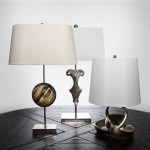```html
Understanding the National Council for Interior Design Qualification (NCIDQ)
The National Council for Interior Design Qualification (NCIDQ) is a crucial entity governing the interior design profession in North America. It serves as the premier source for establishing and upholding standards of competence in the field. The NCIDQ, through its rigorous examination and accreditation process, ensures that interior designers possess the necessary knowledge, skills, and abilities to protect public health, safety, and welfare. This article provides a comprehensive overview of the NCIDQ, exploring its mission, the examination process, and its significance within the interior design industry.
The mission of the NCIDQ is multifaceted, encompassing the development and administration of the NCIDQ Examination (IDFX, IDPX, and PRAC), the setting of standards for qualified interior designers, and the promotion and advocacy of professional recognition for qualified interior designers. The organization strives to elevate the profession by establishing a benchmark for competency, thereby ensuring that those who practice interior design are well-equipped to handle complex design projects and contribute positively to the built environment.
NCIDQ certification is widely recognized and often required for practicing interior design in many jurisdictions throughout the United States, Canada, and other regions. This certification signifies that an interior designer has met a high standard of education, experience, and examination performance. It offers assurance to clients, employers, and the public that the designer is qualified to provide competent and responsible interior design services.
The NCIDQ Examination: A Gateway to Professional Recognition
The cornerstone of NCIDQ's work is the NCIDQ Examination, a standardized test designed to evaluate the competency of aspiring interior designers. The examination is divided into three sections: the Interior Design Fundamentals Exam (IDFX), the Interior Design Professional Exam (IDPX), and the Practicum Exam (PRAC). Each section builds upon the previous one, progressively assessing different aspects of interior design knowledge and skills.
The IDFX focuses on foundational knowledge in areas such as building systems, codes, construction standards, design theory, history of interior design, and professional practice. It primarily tests recall and application of fundamental principles. Candidates typically take this exam after completing their education but before gaining significant professional experience. Passing the IDFX demonstrates a solid understanding of the theoretical underpinnings of interior design.
The IDPX assesses the application of knowledge and decision-making skills in real-world scenarios. It covers topics such as project management, building codes, construction documents, and sustainability. Candidates are expected to demonstrate their ability to analyze complex problems, make informed decisions, and communicate effectively. The IDPX evaluates the practical application of the knowledge acquired through education and early professional experience.
The PRAC, or Practicum Exam, is the final and most comprehensive section of the NCIDQ Examination. It is a computer-based examination that requires candidates to solve design problems within a simulated project environment. The PRAC assesses the candidate's ability to integrate knowledge and skills from all areas of interior design, including programming, space planning, building systems, codes, and construction detailing. The exam emphasizes critical thinking, problem-solving, and the ability to produce accurate and comprehensive design solutions. This section is often perceived as the most challenging, requiring a significant amount of preparation and practical experience.
To be eligible to take the NCIDQ Examination, candidates must meet specific education and experience requirements. These requirements vary depending on the candidate's educational background. Individuals with a bachelor's degree in interior design typically require two years of qualifying work experience, while those with a master's degree may require less. It's essential for aspiring interior designers to carefully review the eligibility requirements on the NCIDQ website to ensure they meet the criteria before applying to take the exam.
The Importance of NCIDQ Certification for Interior Designers
NCIDQ certification holds significant value for interior designers, offering numerous benefits that can enhance their professional careers. One of the primary advantages is increased credibility and recognition within the industry. Certification demonstrates to clients, employers, and colleagues that the designer has met a rigorous standard of competence and is committed to upholding ethical principles. This can lead to greater trust and confidence, opening doors to new opportunities and collaborations.
In many jurisdictions, NCIDQ certification is a legal requirement for practicing interior design. These jurisdictions, often referred to as title act or practice act states/provinces, have laws that regulate the use of the title "interior designer" or restrict the practice of certain interior design services to qualified individuals. NCIDQ certification is often the accepted standard for demonstrating competence and meeting these legal requirements. Therefore, obtaining certification is essential for interior designers who wish to practice in these regulated areas.
Furthermore, NCIDQ certification can lead to higher earning potential. Certified interior designers are often viewed as more valuable assets by employers and are therefore more likely to command higher salaries and benefits. Clients may also be willing to pay a premium for the services of a certified designer, knowing that they are working with a qualified professional who has demonstrated a commitment to excellence. The tangible benefits of certification extend beyond just professional recognition, directly impacting financial stability and career advancement.
Beyond the tangible benefits, NCIDQ certification also fosters a sense of professional responsibility and ethical conduct. The NCIDQ Code of Ethics and Professional Conduct outlines the principles and standards that certified designers are expected to uphold. This code emphasizes the importance of protecting public health, safety, and welfare; acting with integrity and honesty; and maintaining competence through continuing education. By adhering to these ethical guidelines, certified designers contribute to the overall integrity and reputation of the interior design profession.
NCIDQ and the Future of Interior Design
The NCIDQ plays a pivotal role in shaping the future of interior design by continually adapting its examination and standards to reflect the evolving needs of the profession. The organization recognizes the increasing importance of factors such as sustainability, technology, and accessibility in interior design. As such, it is committed to incorporating these elements into the NCIDQ Examination and promoting continuing education opportunities for certified designers to stay abreast of the latest developments.
Sustainability is a critical consideration in modern interior design, and the NCIDQ actively promotes sustainable design practices through its examination and educational resources. The NCIDQ Examination includes questions that assess candidates' knowledge of sustainable materials, energy efficiency, and environmental impact. The organization also encourages certified designers to pursue continuing education in sustainability to enhance their understanding of green building practices and contribute to environmentally responsible design solutions.
Technology is rapidly transforming the interior design profession, with advancements in software, virtual reality, and building information modeling (BIM) impacting design processes and workflows. The NCIDQ recognizes the importance of technology in modern practice and incorporates it into the NCIDQ Examination. Candidates are expected to demonstrate their ability to use technology effectively to create accurate and comprehensive design documents and communicate design ideas. The organization also promotes the use of technology in continuing education to help certified designers stay current with the latest technological advancements.
Accessibility is another crucial consideration in interior design, ensuring that spaces are usable and inclusive for people of all abilities. The NCIDQ actively promotes accessible design practices through its examination and educational resources. The NCIDQ Examination includes questions that assess candidates' knowledge of accessibility standards and guidelines, such as the Americans with Disabilities Act (ADA). The organization also encourages certified designers to pursue continuing education in accessible design to enhance their understanding of universal design principles and create inclusive environments.
In conclusion, the NCIDQ is an essential organization that sets the standard for competence in the interior design profession. Through its rigorous examination and certification process, the NCIDQ ensures that interior designers possess the necessary knowledge, skills, and abilities to protect public health, safety, and welfare. NCIDQ certification is widely recognized and often required for practicing interior design, offering numerous benefits to certified designers, including increased credibility, higher earning potential, and a commitment to ethical conduct. As the profession continues to evolve, the NCIDQ will continue to play a vital role in shaping the future of interior design by adapting its standards and promoting continuing education in areas such as sustainability, technology, and accessibility.
```
Ncidq 101 Everything You Need To Know About The Creative Confidante

Idpx Ncidq National Council For Interior Design Qualification

Ncidq 101 Everything You Need To Know About The Creative Confidante

What Is The Ncidq Exam An Interior Designer Rebecca Ward Design

Ncidq 101 Everything You Need To Know About The Creative Confidante

Understanding The Ncidq And How It Benefits You As An Interior Designer Sarah Jacquelyn Interiors

Ncidq Exam And Certification Everything You Need To Know Foyr

Section 1 Ncidq National Council For Interior Design Qualification

National Council For Interior Design Qualification Ncidq Exam Mcree Learning Center

Idep Ncidq National Council For Interior Design Qualification








